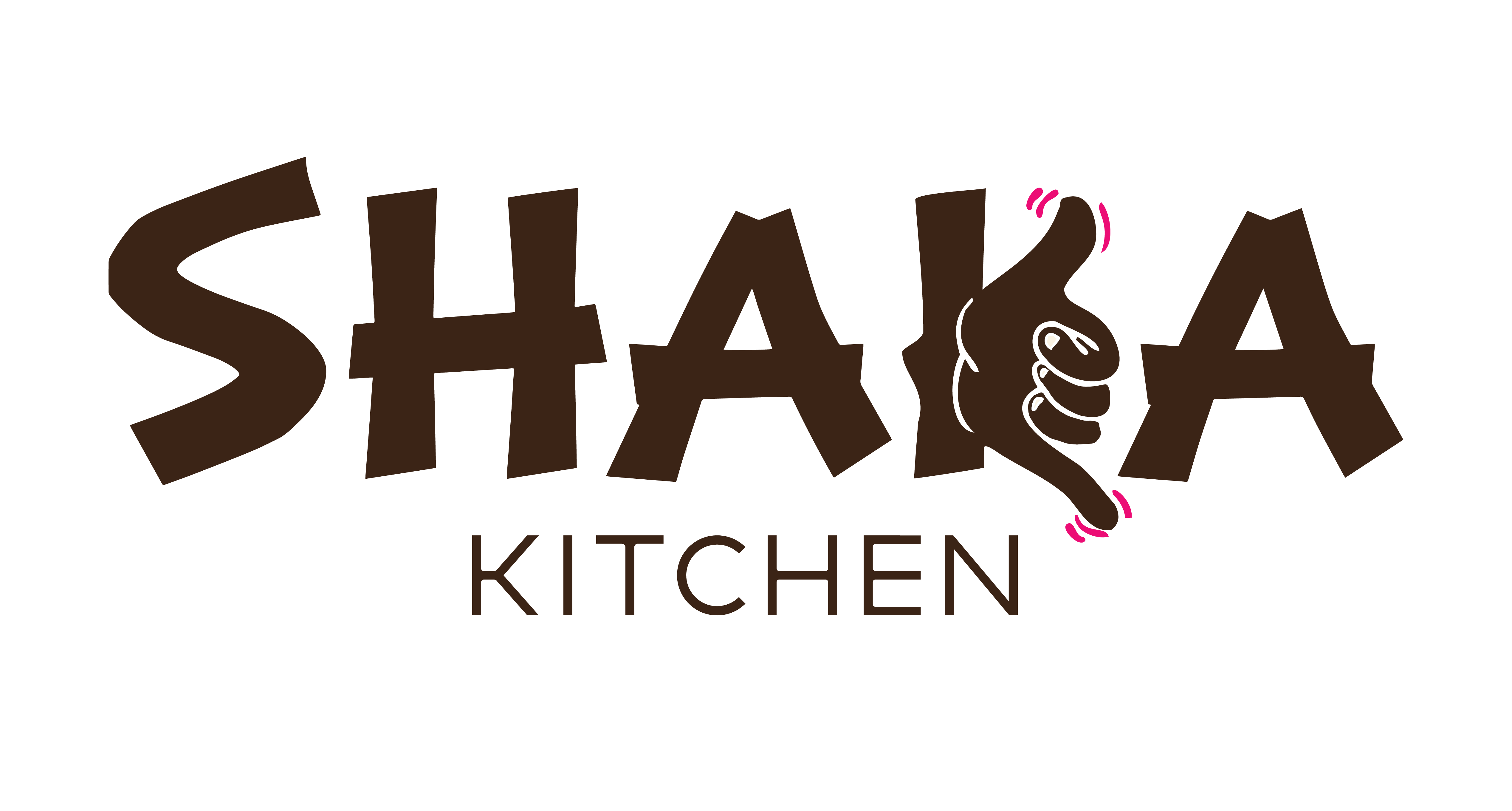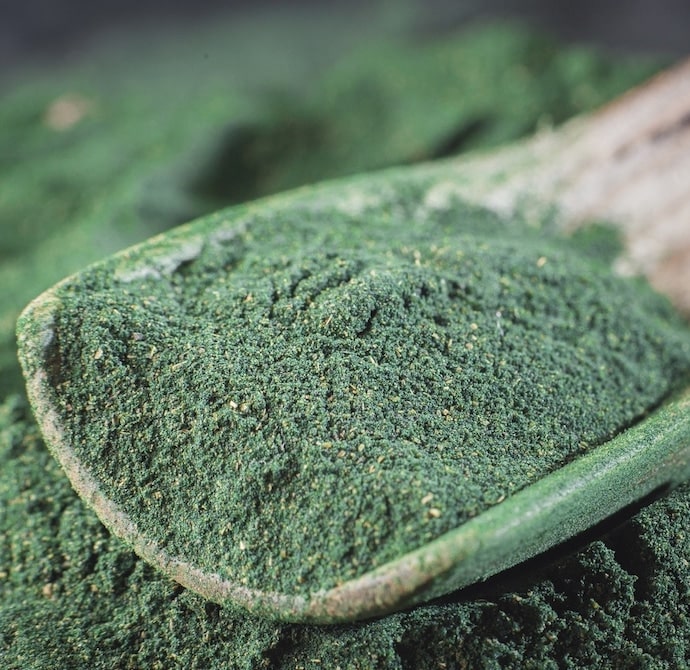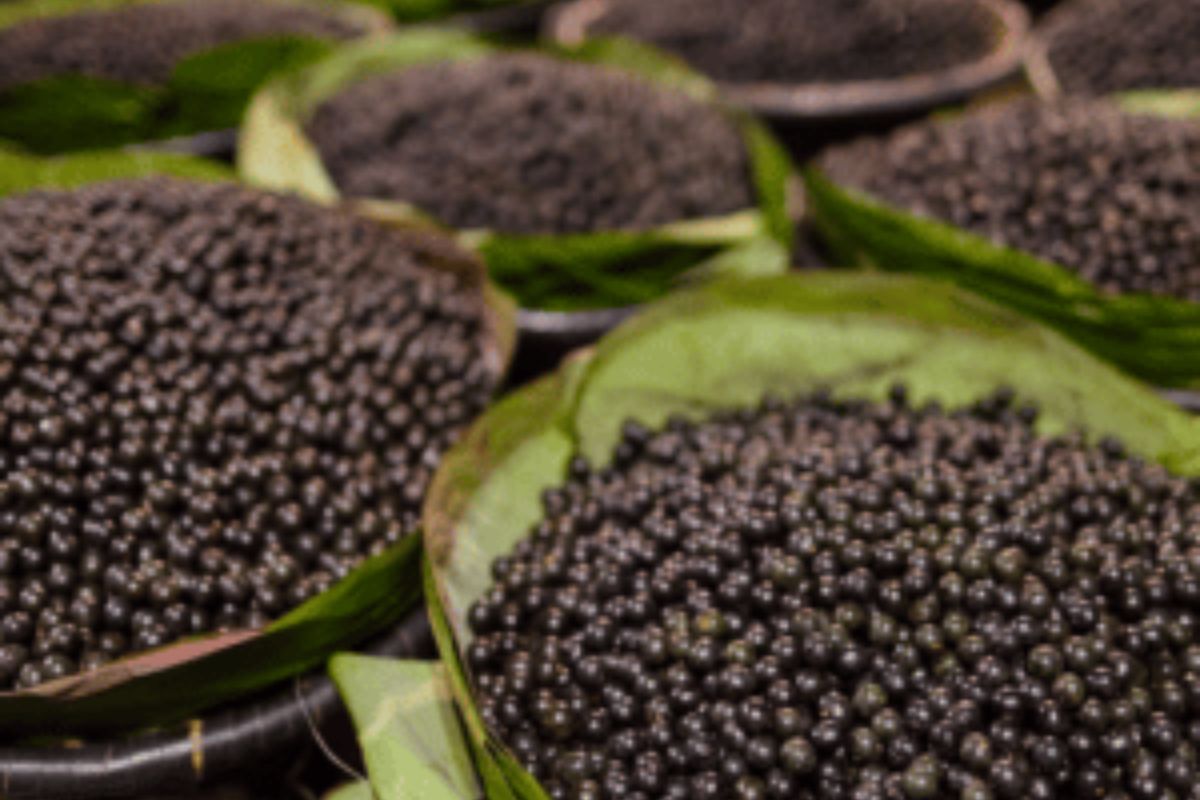Gut health might sound like a trendy topic, but it’s actually one of the foundational aspects of our overall well-being. Have you ever noticed how your stomach feels after eating certain foods? That’s your gut speaking! Understanding how our digestive system and its tiny inhabitants—the microbiome—work is essential for many reasons, including digestion, immune support, and even mood regulation. Given the significant influence of this microscopic community, it’s unsurprising that our dietary choices can significantly impact our emotional state. We’re here to dive into the world of gut health, explore its importance, and uncover some simple yet delicious ways to nourish your gut so you can feel your best every day!
Gut Health 101 refers to the essential understanding of how our gastrointestinal system and microbiome function, impacting digestion, nutrient absorption, and immune system performance. A healthy gut is crucial for overall well-being, as it plays a significant role in maintaining physical and mental health through proper digestion and balance of microorganisms.
Overview of Gut Health
Gut health encompasses the delicate balance of microorganisms within your gastrointestinal system, encompassing both the digestive tract and the gut microbiome. This lively community of bacteria, viruses, fungi, and other microorganisms performs numerous essential functions that can influence our overall health.
Close to 70% of our immune system lies in the gut, revealing its critical role in protecting us from illness while aiding digestion and nutrient absorption. When these microbial residents are thriving, they efficiently break down food into vital nutrients and help filter out waste, ensuring our bodies utilize everything we consume effectively.
Functions of a Healthy Gut
A healthy gut fundamentally upholds a strong defense against pathogens. It does this not only through its immune function but also by managing what enters our bloodstream. The enzymes produced within the gut break down food particles into smaller components that the body can absorb, keeping our energy levels up and allowing our systems to function seamlessly.
However, when gut health is compromised—whether through poor diet, stress, or prolonged antibiotic use—it can lead to serious issues such as nutrient deficiencies. If your gut cannot adequately absorb iron or vitamin B12, it may result in fatigue or anemia over time. It’s crucial to remember that what happens in the gut can have ripple effects throughout your entire body.
Benefits of a Healthy Gut
A flourishing microbiome provides many benefits that extend far beyond simple digestion. Studies have shown that individuals with balanced gut flora experience improved digestion and nutrient absorption, along with enhanced immune responses and reduced inflammation levels. There is even emerging evidence linking a healthy gut with better mental health—yes, there’s truth to the saying that “the gut is the second brain.”
- Improved digestion and nutrient absorption
- Enhanced immune function
- Better mental health
- Lower inflammation levels
Considering these significant advantages makes it clear why paying attention to what we consume is vital for sustaining good gut health. At Shaka Kitchen, we’re committed to holistic nutrition, with dishes crafted specifically to support your digestive wellness—our menu features fiber-rich salads and probiotic-packed smoothies designed for optimal gut function. Your journey towards better health begins with the food you eat!
As we explore further, we will uncover how the intricate balance of microorganisms plays a pivotal role in your overall well-being.
The Role of the Microbiome
The gut microbiome is not just a collection of bacteria; it represents a vital ecosystem within our bodies that influences nearly every aspect of our health. Consisting of trillions of microorganisms, including bacteria, fungi, and viruses, this intricate system operates like a mini-universe within us. Its valuable role encompasses digestion, nutrient absorption, weight management, and even emotional well-being, showcasing how interconnected are our overall health and the microbial population in our intestines.
Microbiome Diversity
Interestingly, each individual harbors approximately 200 different species of bacteria in their gut. However, it’s important to note that diversity is just as important as quantity. A balanced and varied assortment of gut bacteria can significantly enhance health outcomes, paving the way for a stronger digestive system and a more formidable immune response. This diversity aids not only in breaking down food efficiently but also fortifies the body’s defenses against pathogens. Depending on your dietary habits, the composition of these microbial species can fluctuate, so when we talk about having a healthy microbiome, it’s essential to consider not just more species but the right mix.
How to Nurture Your Microbiome
Nurturing your gut’s diversity requires conscious changes in your eating habits. One effective way is by consuming a broad array of foods rich in dietary fibers. Fiber acts as food for beneficial gut bacteria, fostering their growth and promoting a thriving microbial community. Foods high in fiber include fruits, vegetables, whole grains, nuts, and legumes. At Shaka Kitchen, we emphasize these principles through our diverse menu offerings. For instance, our quinoa bowls and hearty mixed vegetable soups are designed not only to tantalize your taste buds but also to ensure you’re nourishing your gut health with fiber-rich ingredients.
Prioritizing varied meals filled with different colors and textures can be a delightful way to support your microbiome. Each meal presents an opportunity—think of it as feeding the garden of healthy bacteria residing in your gut!
By incorporating diverse sources of nourishment into our diets, we can create a flourishing environment for our microbiomes while enhancing our overall well-being. This leads us to explore the incredible world of specific microorganisms that contribute to this dynamic ecosystem.
Types of Bacteria in the Gut
Not all bacteria are created equal. In fact, our gut is home to a wide variety of microorganisms that play crucial roles in keeping us healthy.
These bacteria can broadly be classified into two categories: beneficial and pathogenic. While beneficial bacteria support digestion and bolster our immune system, pathogenic bacteria can lead to various health issues. Understanding the different types of bacteria and their specific benefits is vital for fostering good gut health.
Key Types of Gut Bacteria
| Type | Benefits | Examples |
| Lactobacillus | Aids in digestion; enhances immunity | Found in yogurt, kefir |
| Bifidobacterium | Reduces inflammation; supports the gut lining | Found in fermented foods |
| Bacteroidetes | Breaks down complex carbohydrates | Present in a balanced diet |
| Firmicutes | Helps extract energy from food; assists fat storage | Found in various animal products |
| Actinobacteria | Produces short-chain fatty acids beneficial for gut health | Found in fermented dairy products |
Focusing on lactobacillus and bifidobacterium, these two types are often the stars of digestive health. Lactobacillus aids digestion and even helps boost immunity, which is why it’s prevalent in fermented foods like yogurt and kefir. Further, Bifidobacterium reduces inflammation and fortifies the gut lining, which is crucial for individuals struggling with digestive disorders.
Understanding this spectrum of gut bacteria highlights the importance of consuming a diverse range of foods that nourish both beneficial bacteria and our overall gut microbiome.
You may be wondering how to maintain a thriving community of beneficial bacteria while preventing the growth of pathogenic ones. This balance can be achieved by regularly incorporating probiotic-rich foods into your diet, such as yogurt, kimchi, or sauerkraut, which introduce these helpful microorganisms into your gut. In tandem with probiotics, prebiotic foods—like bananas, asparagus, and onions—that serve as fuel for your existing beneficial bacteria are equally crucial.
Have you ever noticed how certain changes in your diet have affected your mood or energy levels? That connection often stems from the interplay between your gut microbiome and overall well-being.
As you prioritize what you eat, think about including diverse sources of both probiotics and prebiotics to cultivate a healthier environment for your gut flora. By doing so, you’re not only enhancing your digestion but also supporting your immune function and potentially elevating your mental health—all through simple dietary choices!
With this understanding of the importance of diverse gut bacteria and how to nurture them through our diets, we can now turn our attention to other factors that impact this delicate balance.
Factors Affecting Your Gut
Several elements can significantly affect the state of your gut health, creating both short-term and long-lasting effects. One of the most prominent influences is diet. A diet laden with sugars and processed foods can create a hostile environment for beneficial bacteria, leading to an imbalance in your gut microbiome. Studies show that this imbalance may trigger digestive issues and contribute to chronic health problems like obesity and diabetes.
On the other hand, indulging in a variety of whole foods—fruits, vegetables, lean proteins, and whole grains—proactively nurtures your gut health. At Shaka Kitchen, you’ll find nutrient-dense meals crafted specifically to foster a balanced diet that supports a thriving gut microbiome.
Another critical factor often overlooked is stress.
Stress has a profound impact on our digestion, primarily because of the connection between our brain and gut. This relationship is managed by the enteric nervous system, often referred to as our “second brain.” When we experience chronic stress, it disrupts this communication pathway and can lead to various digestive ailments such as bloating or heartburn. Techniques such as mindful eating—which involves being present during meals—and deep breathing exercises can ease the stressful cues that our body receives while eating, thereby promoting healthier digestion.
Beyond just lifestyle choices like diet and stress management, medication also plays a pivotal role in maintaining gut health.
While medications like antibiotics are essential for combating infections, they have a drawback: they can eradicate not only harmful bacteria but also many beneficial strains in your gut. This can lead to disturbances in your microbiome balance. For those undergoing antibiotic treatment, it’s wise to consider incorporating probiotics into your recovery plan post-treatment. Consuming yogurt or taking probiotic supplements can help restore these good bacteria, allowing your gut flora to bounce back effectively.
Understanding the interplay and influence of these factors allows us to adopt more intelligent dietary practices and lifestyle modifications that promote overall gut health. The next step is exploring specific foods that can enhance this journey toward digestive health.
Probiotic and Prebiotic Foods
Probiotics and prebiotics are vital allies in maintaining a healthy gut. Each plays a distinct role; probiotics are live beneficial bacteria that can significantly impact your digestive health when included in your diet.
But what does that really mean? It’s all about balance: introducing good bacteria to our gut ecosystem helps ensure that it functions efficiently. Foods like yogurt, sauerkraut, and kimchi are fantastic sources of these probiotics.
For instance, at Shaka Kitchen, we take pride in our house-made kimchi that not only packs a flavor punch but also serves as a potent tool for promoting gut health.
By integrating these probiotic-rich foods into your diet, you can foster a thriving community of helpful microorganisms within your digestive system.
Prebiotics
Now let’s explore prebiotics, the secret weapon often overshadowed by probiotics. Prebiotics are like fertilizer for your good gut bacteria. They’re non-digestible fibers that feed the beneficial species already present in your gut. This nourishment encourages the growth and activity of those vital microbes, boosting overall digestive health. Some common sources of prebiotics include garlic, onions, and bananas.
At Shaka Kitchen, our fiber-rich salads and side dishes feature these ingredients, making it easier for customers to naturally bolster their gut health with every meal.
The interplay between prebiotics and probiotics is fascinating; when you consume them together, they create a synergistic effect, amplifying their health benefits. Think of it as hosting a party where the guests (the probiotics) get all the energy they need from snacks (the prebiotics) to have fun and thrive.
Increasing awareness and interest in gut health have led to more people seeking out foods rich in these nutrients, which means that there are plenty of delicious options ready to be explored.
Consider incorporating both prebiotic and probiotic foods into your meals as you make your dietary choices. Not only does this dual approach promote better digestion, but it also supports a wide range of bodily functions, including immune responses and even mental well-being. Maintaining a healthy gut isn’t just about what you eat today; it’s about cultivating an environment that allows good bacteria to flourish over time.
The next chapter in nurturing your gut health includes examining how specific food combinations can lead to even greater digestive wellness.
Dietary and Lifestyle Choices
When it comes to diet, incorporating a variety of whole foods is crucial. Think of foods that are close to their natural state, such as fruits, vegetables, whole grains, and lean proteins. These items are rich in fiber and nutrients, which support digestion and foster a happy gut microbiome.
At Shaka Kitchen, we emphasize the importance of these ingredients—each dish is crafted from fresh, whole-food selections designed to nourish your body while tantalizing your taste buds. Consider trying vibrant dishes that burst with color; they not only look appetizing but also signal a variety of nutrients working together to bolster gut health.
It’s wise to steer clear of overly processed foods and added sugars. These can upset the balance of your gut flora and may lead to inflammation. Imagine fueling your body like a high-performance vehicle; each ingredient serves as a key component ensuring smooth operation. Just like you wouldn’t pour low-grade fuel into a top-tier car, avoid filling your plate with foods that offer little benefit in exchange for taste alone.
Lifestyle Choices
Shifting our focus from what we eat, it’s equally important to consider how we live. Research consistently shows that regular exercise positively influences gut flora. Think of physical activity as a joyful dance that helps keep everything in rhythm. Whether it’s a leisurely walk, an intense workout session, or even yoga—consistency is vital. Engage in movement you find enjoyable, because this will naturally encourage you to stick with it over time.
Hydration is another key player in supporting your gut health. Drinking enough water aids in digestion and nutrient absorption. Picture water as the lubricant in your engine; without it, everything risks becoming rusty and squeaky. Aim for at least eight 8-ounce glasses daily, but remember that hydration needs can vary based on activity level and climate.
Sleep often gets overlooked but is critical for maintaining gut health. Inadequate sleep can disrupt the body’s natural processes, including those that regulate digestion. Think about sleep as a reset button; when you don’t get enough restorative rest, it could be likened to navigating your day on outdated software—it simply doesn’t run smoothly.
Finally, let’s talk about stress management. With today’s fast-paced lifestyle, finding techniques such as mindfulness or meditation can mitigate the adverse effects stress has on our gut health. Picture stress as an unwelcome guest sitting at your dinner table; if allowed to linger too long, they can spoil the meal for everyone involved—effectively throwing your digestive system off balance.
By adjusting both dietary selections and lifestyle habits, you’ll lay the groundwork necessary for optimal gut function and overall wellness. This seamless transition leads us to further explore the interconnectedness between digestive health and the body’s immune response.
The Gut’s Role in Immunity
The connection between our gut health and our immune system is profound and complex. You might be surprised to learn that nearly 70% of our immune system resides in the gut. This means that the health of our digestive system can significantly influence how well we fend off illnesses. A balanced gut microbiome, which consists of diverse beneficial bacteria, plays a crucial role in modulating immune responses and protecting against infections. When our gut is healthy, it helps create a robust defense system against pathogens like viruses and bacteria.
Gut-Immune Connection
Studies have shown that specific strains of probiotics can enhance the immune response by increasing the production of antibodies and strengthening the activity of immune cells. Beneficial bacteria can signal immune cells to become more active, ensuring our bodies maintain their defenses. Furthermore, these bacteria help produce essential short-chain fatty acids (SCFAs) during digestion, which not only nourish gut cells but also regulate inflammation—a key player in many chronic diseases.
With a flourishing community of microorganisms, the gut fosters an environment where inflammation is managed effectively. In contrast, when our gut microbiome is imbalanced—a state called dysbiosis—it can lead to increased inflammation and susceptibility to infections or autoimmune conditions. Hence, understanding this intricate relationship emphasizes the need for regular care of your gut.
Enhancing Immunity Through Diet
One of the most impactful ways to support gut health—and consequently boost immunity—is through diet. Eating a wide variety of fruits, vegetables, whole grains, and fermented foods can make a significant difference. These nutrient-dense foods are packed with fiber, vitamins, and other bioactive compounds essential for nurturing both our gut flora and immune system.
At Shaka Kitchen, we prioritize these ingredients because they delight the palate while actively supporting your health every day. For instance, consider enjoying a hearty plate of fermented kimchi or a refreshing salad loaded with leafy greens enhanced by colorful berries. Both add delicious flavors while promoting a healthy gut environment.
Moreover, incorporating foods rich in polyphenols, such as dark chocolate or green tea, into your routine can stimulate the growth of beneficial microbes and improve your body’s overall inflammatory response.
With all this knowledge about how crucial it is to maintain a healthy gut for our overall well-being, prioritizing dietary choices that promote gut health becomes not just beneficial but essential.
Take charge of your gut health today for better immunity and overall wellness. If you’re interested in learning how we can help support your journey, don’t hesitate to contact us at Shaka Kitchen or call us at 201-835-9174!



